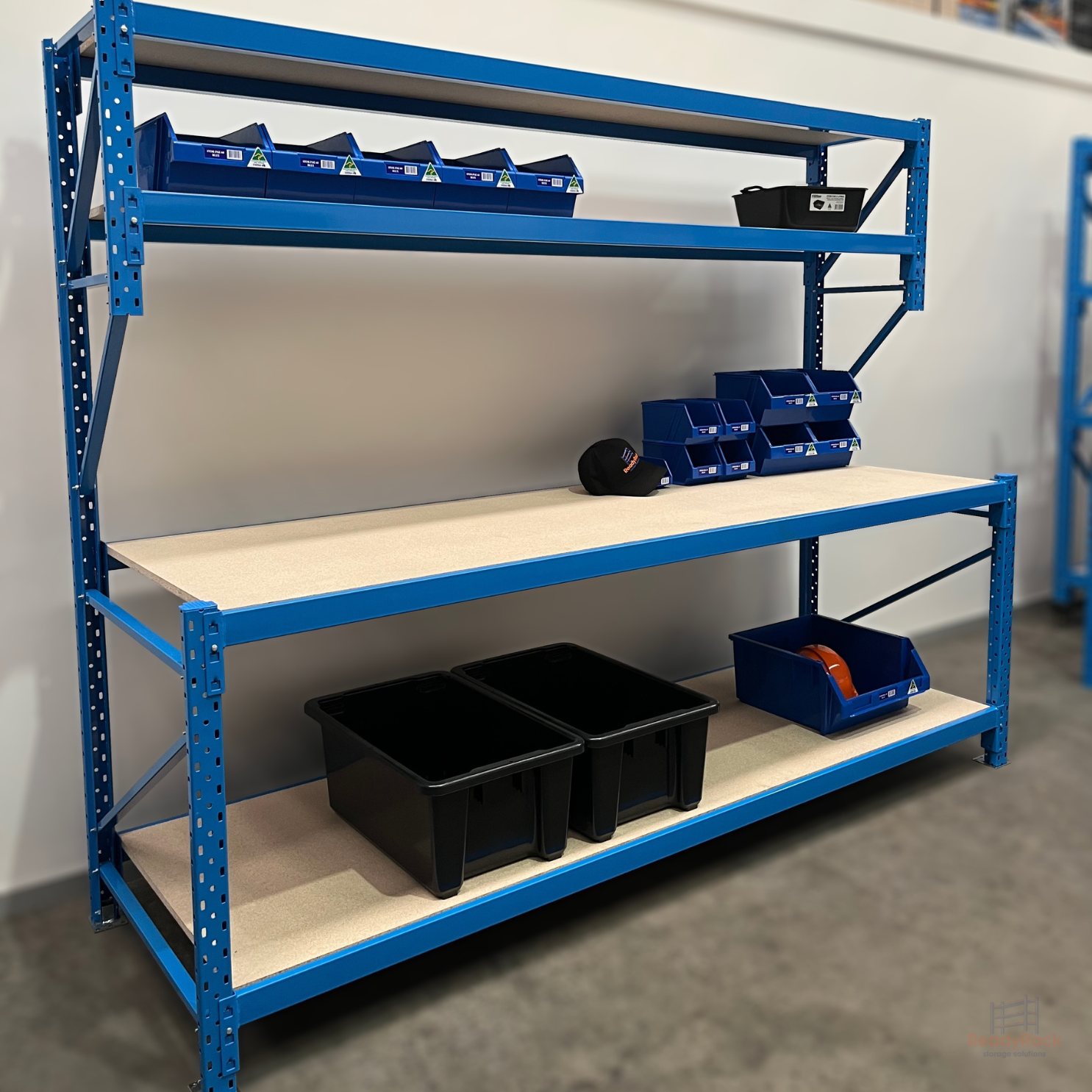Whether you're a DIY enthusiast or a professional craftsman, this article will help you make an informed choice. Let's explore the world of workbenches together.
Understanding Workbench Types
A workbench is more than just a table. It's a vital tool that enhances efficiency and organisation in your workspace.
There are several types of workbenches. Each type is designed to cater to specific needs and applications.
Garage workbenches, portable workbenches, and steel workbenches are among the most common. Each has unique features that make it suitable for certain tasks.
Understanding these types is the first step in choosing the right workbench. Let's delve deeper into these categories.
6 Essential Features of a Workbench
Key Factors to Consider
When choosing a work bench, several factors come into play. These factors determine the suitability of a workbench for your specific needs.
The size of the bench is crucial. It should fit your workspace without causing congestion.
The material of the workbench also matters. It should withstand the type of work you do.
Lastly, consider the workbench's storage options. A good bench should help you keep your tools organised.
- Size
- Material
- Storage options
Size and Space
The size of your workbench should match your workspace. A large workbench in a small space can limit your movement.
On the other hand, a small workbench in a large space may not provide enough work surface. Balance is key.
Material and Durability
The material of your workbench determines its durability. Steel workbenches, for instance, are known for their strength and longevity.
Wooden workbenches, on the other hand, offer a traditional feel. They are ideal for woodworking tasks.
Choose a material that can withstand your type of work. Consider factors like weight capacity and resistance to wear and tear.
Garage Workbenches
Garage workbenches are designed for heavy-duty tasks. They are typically larger and sturdier than other types.
These workbenches often feature built-in storage. This helps keep tools and materials organised.
Choosing a garage workbench requires considering the type of projects you undertake. Ensure it can withstand the weight and wear of your tasks.
Portable Workbenches
Portable workbenches are known for their versatility. They can be easily moved around, making them ideal for on-site job
These workbenches are a great choice for small spaces.
When choosing a portable workbench, consider its weight and ease of assembly. These factors can greatly affect its portability.
Choosing and Maintaining Castor Wheels for Workspaces
Steel Workbenches
Steel workbenches are designed for heavy-duty use. They are highly durable and can withstand heavy loads.
These workbenches are ideal for industrial applications. They can resist rigorous use without showing signs of wear and tear.
When choosing a steel workbench, consider its weight capacity. This will ensure it can handle the demands of your projects.
Ergonomics and Comfort
The design of your workbench should promote comfort. This is where ergonomics come into play.
A well-designed workbench can reduce strain and fatigue. It allows you to work for longer periods without discomfort.
Additional Features and Accessories
Workbenches can come with a variety of additional features. These can enhance your workspace and improve efficiency.
Storage solutions like drawers and shelves can keep tools organised. You can customise your workbench to even have built-in power outlets for convenience.
Consider your needs and choose a workbench with features that suit your projects.

